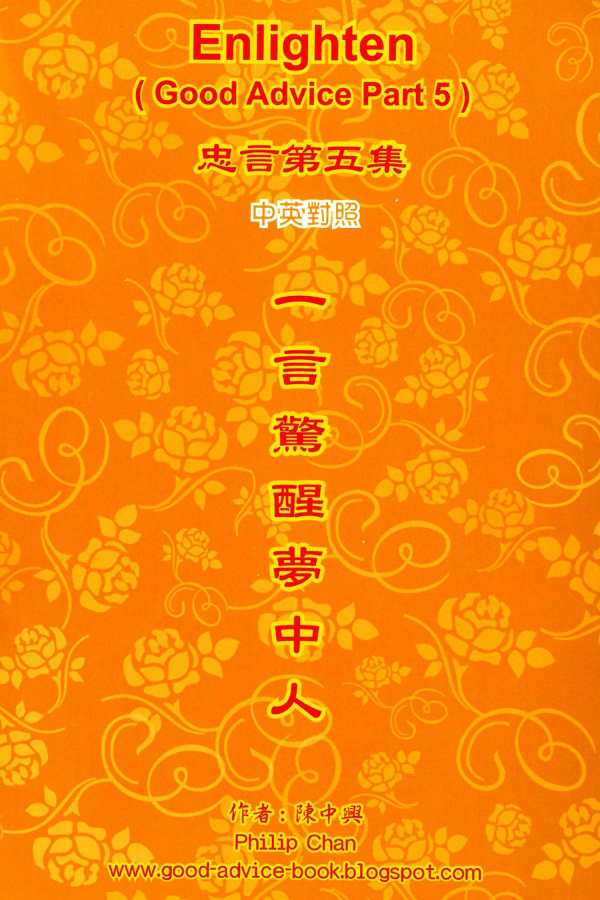Enlighten
Good Advice Part 5
Philip Chan’s bilingual self-help book is a thoughtful guide to achieving balance.
Philip Chan’s self-help book Enlighten draws from personal experiences and traditional Chinese wisdom to forward useful advice for achieving personal enlightenment.
Written in both Chinese and English, the book collects advice from Chan’s blog. This advice is split into three sections: Develop Personal Character; Relax, Relax and Relax; and Smile at Life. Each section includes multiple brief, aphoristic, and topical reflections on everyday life, all with the goal of helping people lead “polite, benevolent and righteous” lives.
The book’s attractive mix of traditional and contemporary advice draws from Chan’s experiences, as well as from ancient and modern Buddhist literature. In both cases, it emphasizes righteousness, benevolence, justice, and positivity. Central to its notions is the idea that it is crucial to accept reality, and to make choices based on how things truly are, instead of clinging to wishes and regrets.
The book’s insistence that people should work to live, rather than live to work, and should spend more time with loved ones, is persuasive. Such notions intersect with the book’s overarching emphasis on the social nature of human beings, and on the importance of establishing and maintaining strong connections to others; both are presented as essential to people’s mental and physical health. The portions of the book that are dedicated to revealing the value of kindness and justice are uplifting and inspiring, quoting traditional Chinese sayings that pack considerable wisdom into a few lyrical words.
But the book’s emphasis on positivity is sometimes overbearing. Claims such as that anger and pain are signs of weakness, or that nothing is a problem in and of itself unless people make it so, are stultifying, as are claims that being taken advantage of can be seen as a compliment, or that everyone starts at the same point in life, that respond to unfair systems with encouragements to work hard and have a good attitude.
Most of the text is clear and direct, though some ambiguous diction leaves passages open to interpretation. Throughout, advice is dispensed in a joyful but matter-of-fact manner, clarified with similes and analogies that are handled with poetic skill. Nonetheless, the book’s advice becomes repetitive, and portions of the book are tedious because they are too familiar.
Philip Chan’s bilingual self-help book is a thoughtful guide to achieving balance.
Reviewed by
Carolina Ciucci
Disclosure: This article is not an endorsement, but a review. The publisher of this book provided free copies of the book and paid a small fee to have their book reviewed by a professional reviewer. Foreword Reviews and Clarion Reviews make no guarantee that the publisher will receive a positive review. Foreword Magazine, Inc. is disclosing this in accordance with the Federal Trade Commission’s 16 CFR, Part 255.

